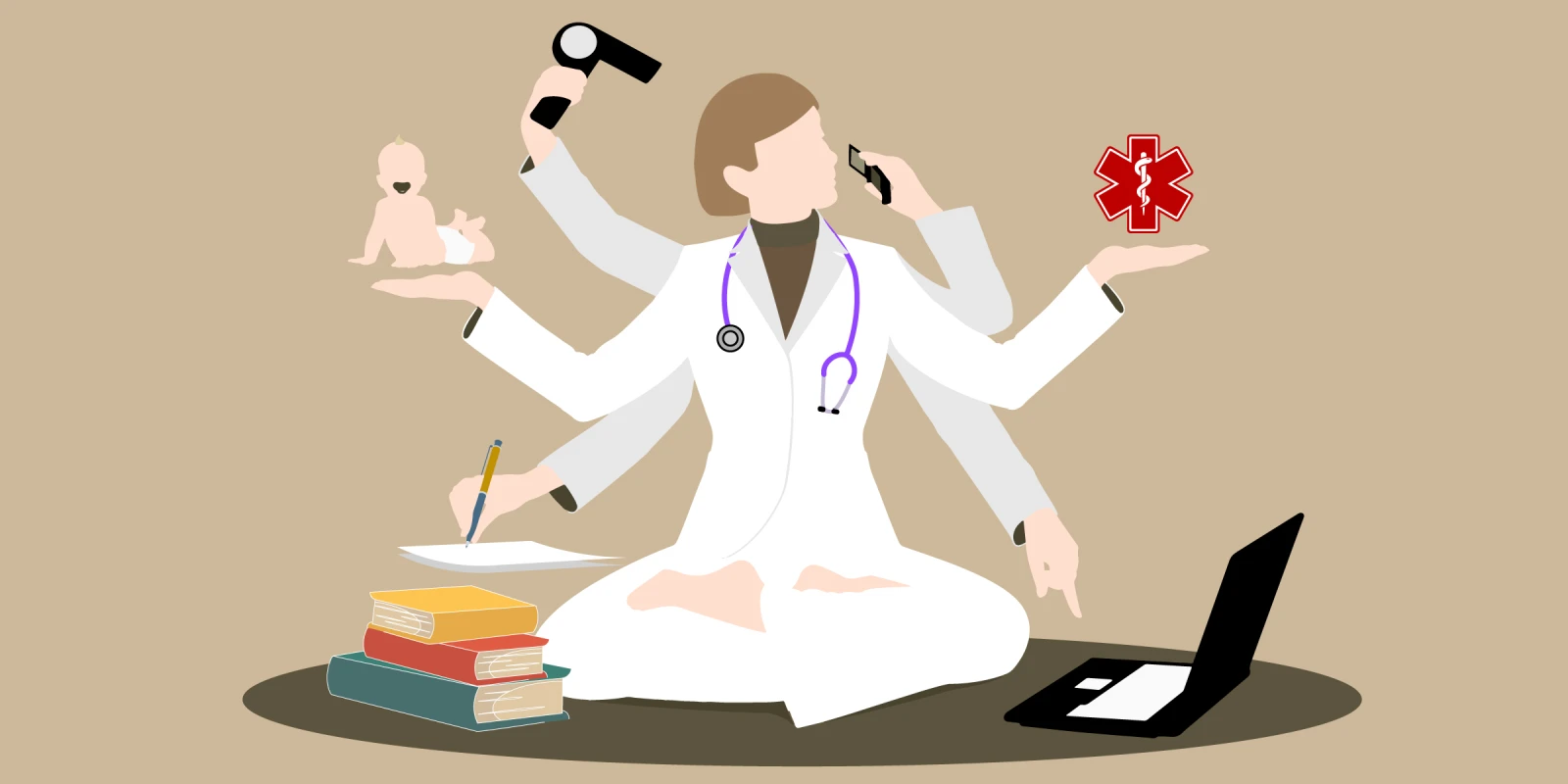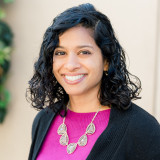Work-life balance in medicine is a constant struggle, and few doctors may feel like they truly achieve it. That balancing act becomes even more precarious amidst a pandemic. Ob/gyn physician Dr. Huma Farid wrote about the exhaustion facing American working mothers in a recent Op-Med, “Doctoring and Mothering During a Pandemic.” Many readers weighed in with their reactions to the piece.
The challenges of being a parent and a physician in a COVID-19 world, according to one PM&R doctor, means getting multiple kids to and from multiple schools at different times, a full-time job, ensuring child care, and practicing medicine during a pandemic. “There’s no acknowledgement of the mothers who clearly carry this burden,” she said. “The multiple studies of the burden on working moms before the pandemic were alarming, but now [it’s] even worse.”
One psychiatrist married to another doctor feels this tension acutely, sharing, “I feel like a rubber band that's lost its elasticity. I compare life before COVID and after like going to the grocery store as a [single] person vs. going with a toddler. Everything takes twice as long for reasons you can't predict and can't plan for. I feel fortunate that financially we don't have to worry about basic needs, but I'm worried about when there will be respite.”
There are systemic issues at play that put motherhood and a career in medicine at odds, as well. According to one med/peds physician, “There needs to be a more equitable system-e.g., school partnerships with dental and medical to lower the burden for women and multi-job holding parents. I would propose systemic changes that promote the good of all — not simply us vs. them or men vs. women. This system is broken. Until women with multiple children are actually invited to the table, until the health system is less about power and ego, nothing will change.”
These challenges, coupled with the extraordinary circumstances of a pandemic, could have lasting consequences. One neurologist with a special-needs daughter found herself with little support and increasing caregiving responsibilities as the world ground to a halt. As she put it, “Women have faced the burden of the changes in this pandemic and when the dust settles, we will find many professional women have been left behind. My faltering career has faltered even more in this past year and I'm finally getting to a point where I am starting to pick up the pieces.”
Some physicians hoped that their spouse could help pick up the slack, but questioned whether their male partners were doing their fair share of work at home. As one med/peds doctor wrote, “After tears and pleas for help from my male spouse when we had no childcare (for five kids ages 9 and under) or housekeeper, he continued working, aloof. I too am balancing NIH grants, clinical care, and school-age children. I wake at 3 [a.m.] because I find less distraction and greater willpower to work.” But one ob/gyn asked if female physicians were advocating for themselves, saying “As hard as we work to balance all of this, dealing with life and death, navigating administration and running practices, why on Earth do we not have honest conversations with our partners?! We want money for day care and fight for time to pump, but we won’t tell the teacher to email our husbands.”
Others have been pushed to their tipping point and made changes. An internal medicine physician and divorced mom of three children shared that, “I quit my employed primary care job as my kids got more neglected and the corporate medicine model [became] more frustrating. I am creating my own private practice where I think I can provide good medical care and be a good mom. I think I found it.”
One family medicine physician advised on their own version of balance: “We need to give ourselves permission to not be perfect as juggling parenthood and medicine is like chasing two rabbits: One will always get away from you. Being smart is knowing this and knowing that failure is not only inevitable at times but also an opportunity to grow and develop a new perspective in how to handle the unknown.”
Many Doximity members were relieved to find camaraderie in the tension between being a doctor and being a mother. A rheumatologist reflected on the lifelong sacrifices from med school to the day-to-day struggle of all working mothers. She shared, “It is nice to see that it is finally OK to talk about it and drive support from one another, rather than just sweeping our emotions under the rug and moving on.” An ob/gyn echoed the sentiments, saying “It’s been a long tough haul and the end is not clear, but there’s something about knowing we aren’t alone.”
Self-compassion is key in striking a balance between practicing as a physician and raising a family, many doctor-moms say. The advice of one internal medicine physician sums it up well: “I know it's hard, but you have to give yourself some grace. You are doing the absolute best you can and that has to be enough in this crazy time. Bad moms and bad doctors don't worry so much about how they are doing. We see you and hear you. Stay safe and well and do the best you can and know that you are.”







